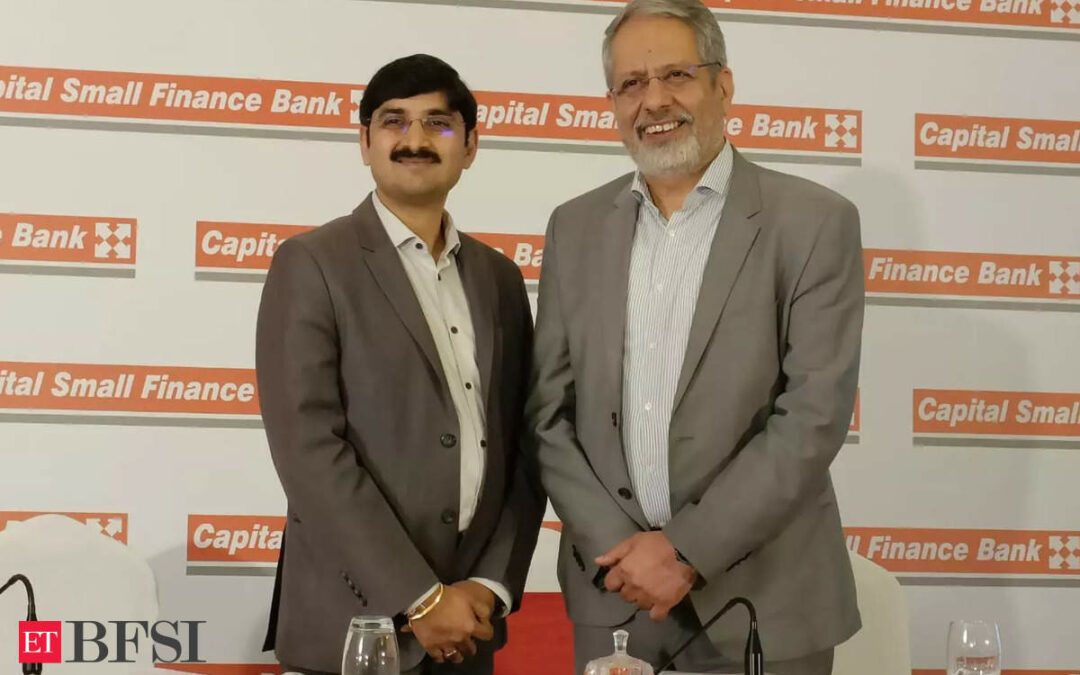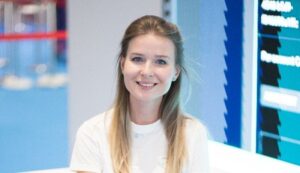“The key important point is our average ticket size of our asset business is 1.3 million. And we are here in a pure secure lending play or rather I will add it, out of the 99.8% secured we have more than 84% of the book which is collateralised by immovable property,” says Munish Jain, Capital Small Finance Bank.
“We were 47 branches based out of those five districts where we were operating as a local area bank and today we are 173 branches, out of which are in five northern states along with the Union Territory of Chandigarh,” Sarvjit Singh Samra, Capital Small Finance Bank says.
Let us try and understand from you that on the point earlier which you just made, just scratch it further, how is Capital Small Finance Bank different in business model versus all the other, some of the recent small finance banks got listed?
Sarvjit Singh Samra: The thing is, we converted from a banking entity to a banking entity. Before starting as India’s first small finance bank, which we started operations on April 24, 2016, we were a local area bank for 16 years. Local area bank operating in the state of Punjab, out of three districts which was originally allocated to us as area of operation and in 2015 growing to five districts, as the regulator granted us two more districts, we added two more districts to our area of operation. We then started to convert from local area bank to small finance bank which has opened up a wide spectrum of opportunities for growth for us. We were 47 branches based out of those five districts where we were operating as a local area bank and today we are 173 branches, out of which are in five northern states along with the Union Territory of Chandigarh.
So, which are the states where you have maximum number of branches? Are you more in Punjab?
Sarvjit Singh Samra: Actually, at present, the more branches are in Punjab, but as I mentioned earlier, originally we were in only five districts and total Punjab has 22 districts. So, after our conversion, it was meaningful for us to spread all over Punjab.
But along with that, after our conversion, we started expansion to Haryana and a few other states as well. So, now, Punjab, we have deepened and we have covered our entire Punjab and Haryana which we presently call is the process of making our next Punjab and, of course, then we will start and this will start to Rajasthan, where already we have started opening branches.
We have branches in Delhi, Himachal and we are there in Union Territory of Chandigarh and all around it. We are very granular on both sides of the balance sheet, whether we talk of assets or liabilities. We are almost 100% secured book with zero direct microfinance exposure. So, our target segment is middle income group, which we define income levels from 4 lakhs to 40 lakhs. We want to become primary banker of this segment. And another thing that I want to share with you very happily that we maintain very high CASA and that is also a CASA in the true sense where we are paying only 3.5% of savings and again this USP has been developed because we are into this liability business for last 24 years.
Since we are talking about how deposits are very strong and CASA is strong, can you talk to me about what has been the growth rate of deposits and in terms of the loan side of things as well, are you largely agricultural loan oriented or which are the other products which is driving growth?
Munish Jain: If we talk about the asset side first, we are typically a secured lender. We are lender to be in for the middle income group segment. Our typical lending franchise or I can say 85% of the lending franchise constituting the three products, that we call MSME, mortgage and agri. The perspective is we want to be the primary banker of the customer. Within this, if we look into the subsets, so agriculture constituting around 38% to 39% of the book, mortgage constituting 26% of the book, MSME constituting around 20% of the book.
The key important point is our average ticket size of our asset business is 1.3 million. And we are here in a pure secure lending play or rather I will add it, out of the 99.8% secured we have more than 84% of the book which is collateralised by immovable property.
The perspective is we are in a real term secured lender. And being our history as a local area bank, which make us have a 24 years of the learning as a lender, we are able to maintain a very good quality of the book.
How is your asset quality right now and do you see pressure on that? Also, is your business or loan book also sensitive to the vagaries in the agri side?
Sarvjit Singh Samra: The thing is in, say, if I talk about the asset quality, the asset quality you would appreciate we are comparable with one of the best banks in the country and which we have been able to maintain over the years and another two very important points I share with you that there are almost zero writes-off and no NPS sell-off.
So, the cleansing of balance sheet has never happened. So, this is all the data, all that is there and that is there on the document and on the public domain, this data is all recovery-based. We think since we are a secured lender, so anything we lend, it is recoverable and we do not write-off and we recover it. Of course, it takes some time.










